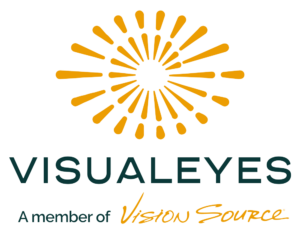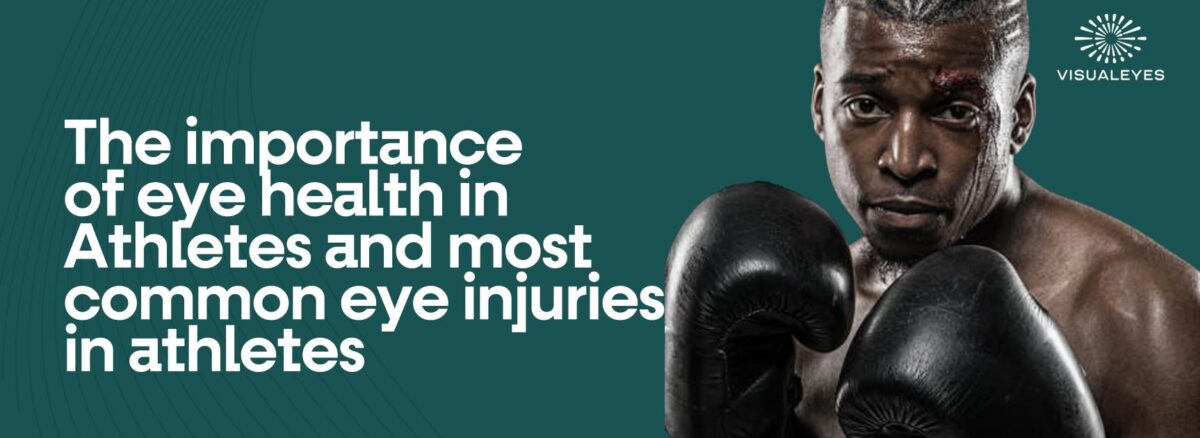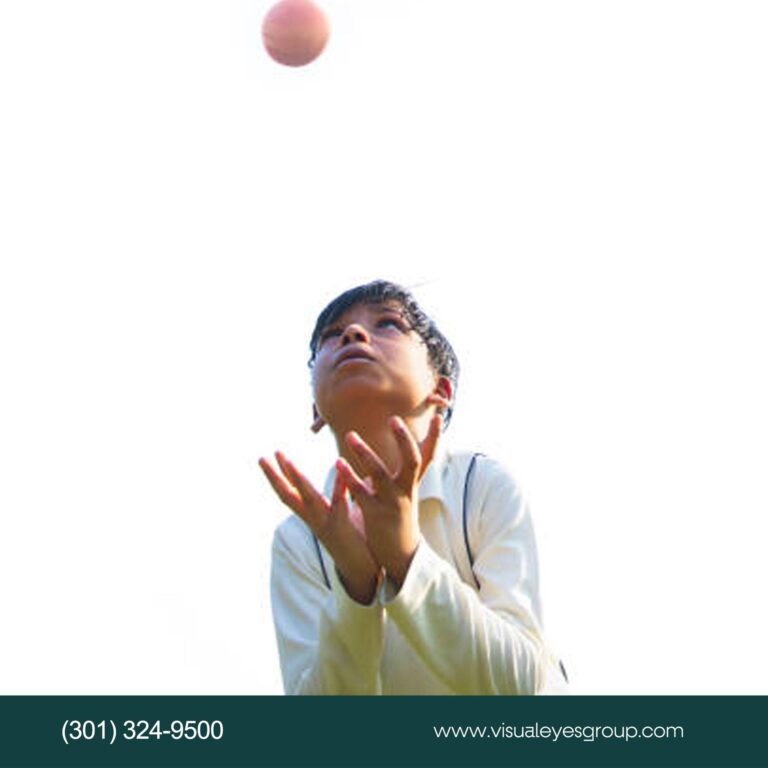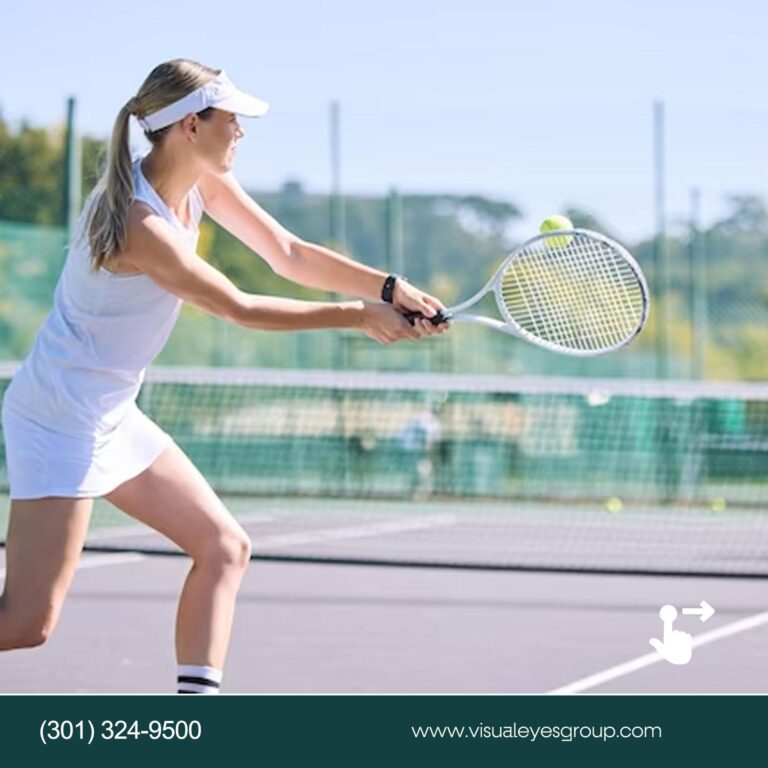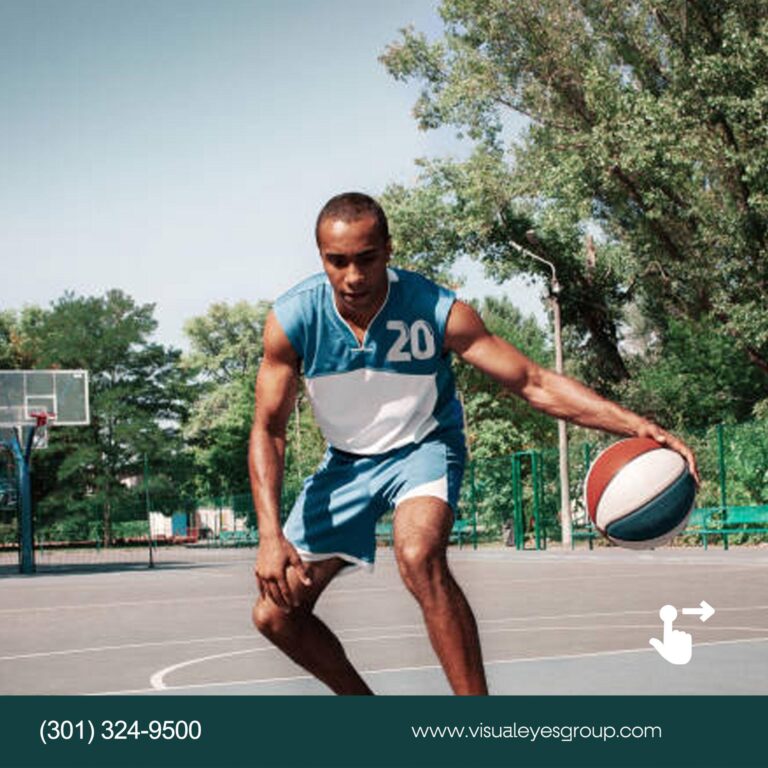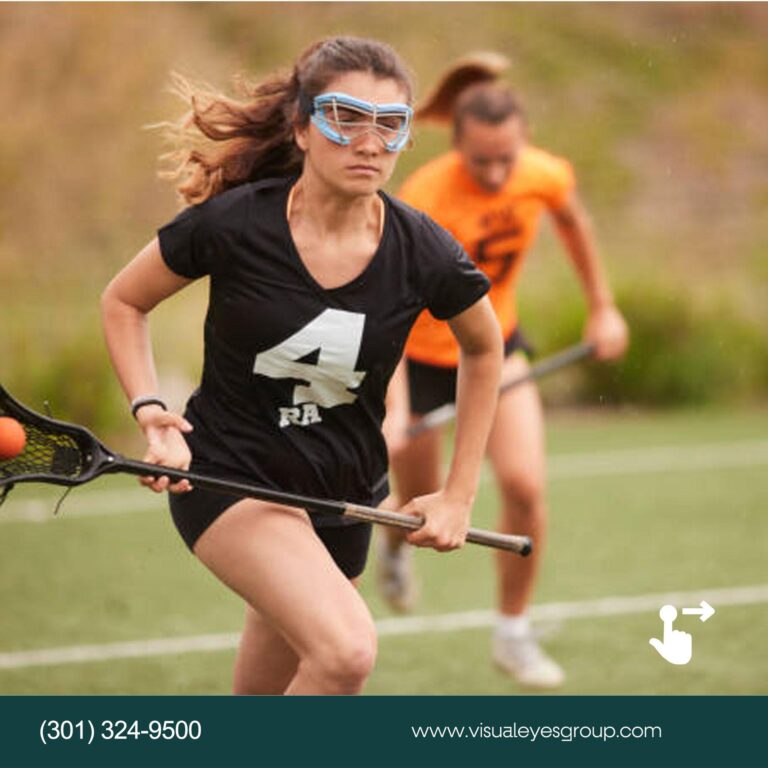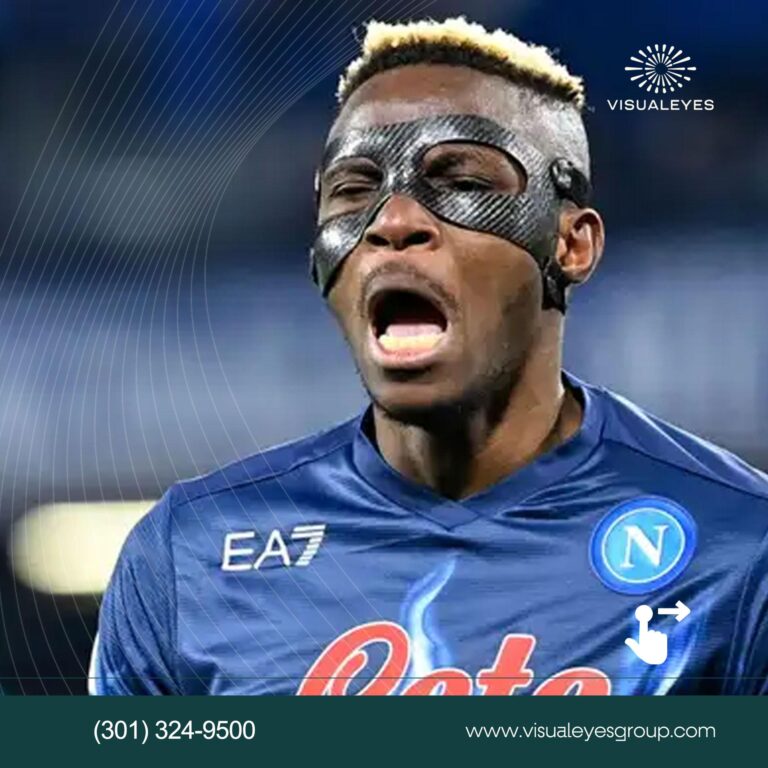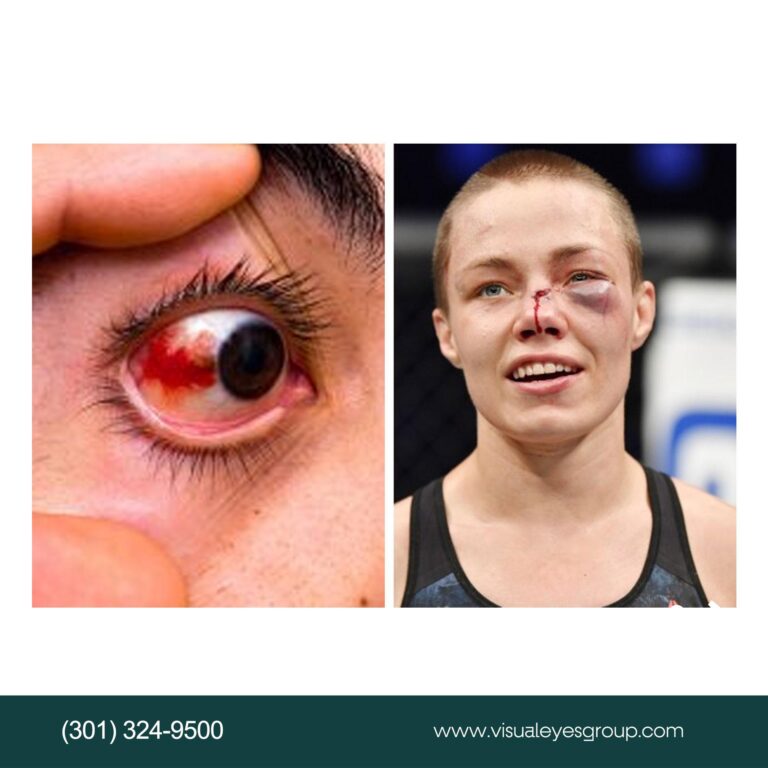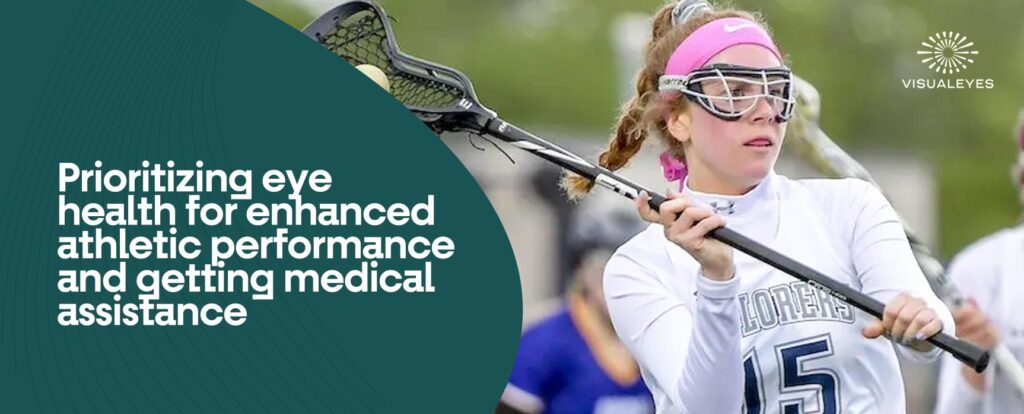- August 31, 2023
- Award Winning, blog, Eye Health and Wellness, Eye Safety and Protection
Table of Contents
1. Introduction
1.1. The importance of eye health in Athletes and most common eye injuries in
athletes
2. Visual Acuity and Accuracy
2.1. Clear vision for tracking objects and making precise decisions
3. Depth Perception and Spatial Awareness
3.1. Judging distances accurately for optimal performance
4. Eye-Hand Coordination
4.1. Smooth coordination between eyes and hands for precise movements
5. Visual Processing Speed
5.1. Quick processing of visual information for fast-paced sports
6. Eye Protection
6.1. Safeguarding eyes from potential injuries and environmental factors
7. Tips for Eye Care for Athletes
8. Conclusion
8.1. Prioritizing eye health for enhanced athletic performance and getting medical
assistance
Introduction
Participating in sports exposes individuals to the risk of eye injuries, with 10% of sports-related injuries
being eye-related. Athletes are particularly susceptible due to potential head and face collisions, impacting
their performance. From mild to severe, eye injuries vary and hinder an athlete’s abilities.
To prevent such risks, athletes must prioritize safety measures.
• Wearing well-fitting safety glasses made of impact-resistant material is paramount.
• Regular eye exams are crucial to identify visual impairments that can hinder performance.
• When engaging in visually demanding sports, kids should rest their eyes and be mindful of
their surroundings.
• Prompt medical attention is necessary if an eye injury occurs, as even minor injuries can
have severe consequences if untreated.
Athletes often focus on physical training and skill improvement, often overlooking eye health.
However, optimal performance, reaction time, depth perception, and overall athletic prowess
depend on healthy eyes.
This blog delves into the significance of eye health for athletes, advocating regular eye exams to
address potential vision issues that might affect performance. Exploring how maintaining good
vision can enhance their performance on the field, court, or track is vital.
Here are some reasons why eye health is important for athletes and some of the most frequent eye problems
that they may sustain:
Visual Acuity and Accuracy
Clear vision is essential for athletes to accurately track objects, judge
distances, and make split-second decisions. Whether it’s catching a ball, aiming for a target, or anticipating
opponents’ moves, athletes heavily rely on their vision to perform at their best. Regular eye examinations
can identify and correct any refractive errors, such as nearsightedness or farsightedness, ensuring optimal
visual acuity and accuracy during competition.
Depth Perception and Spatial Awareness
Depth perception is the ability to perceive the relative
distance between objects accurately. It plays a vital role in sports that require precise timing, such as
hitting a baseball or making a diving catch. Maintaining good eye health helps athletes develop and
maintain optimal depth perception, allowing them to react quickly and accurately judge the position of
objects in their environment
Eye-Hand Coordination
Eye-hand coordination is crucial in sports that involve catching, throwing,
hitting, or any other activity requiring precise hand-eye movements. Healthy eyes enable athletes to track
moving objects smoothly, anticipate their trajectory, and coordinate their hand movements accordingly.
Regular eye exercises and training can improve eye-hand coordination, leading to enhanced performance
on the field.
Visual Processing Speed
In fast-paced sports, such as basketball or soccer, athletes must process visual
information quickly and make split-second decisions. Optimal eye health ensures efficient visual
processing, allowing athletes to react faster, identify patterns, and make better decisions under pressure.
Proper nutrition, including essential nutrients like omega-3 fatty acids, vitamins A, C, and E, and
antioxidants, can support eye health and optimize visual processing speed.
Eye Protection
Athletes are exposed to various environmental factors that can potentially harm their
eyes, such as dust, debris, UV radiation, and impact injuries. Wearing appropriate protective eyewear,
such as goggles or sunglasses, can safeguard the eyes from potential injuries and reduce the risk of longterm damage. Additionally, maintaining proper hygiene, such as avoiding touching the eyes with dirty
hands, is essential in preventing eye infections.
Eye Care Tips for Athletes to prevent serious consequences
Wear protective eyewear:
This is the most important thing athletes can do to protect their eyes from
injury. Protective eyewear should be made of impact-resistant material and should fit properly.
Get regular eye exams:
Even if athletes don’t have any symptoms, it is important to get regular eye exams
to check for vision problems that could impact their performance.
Be aware of their surroundings: When athletes are playing sports, they should be aware of potential
hazards that could cause an eye injury. This includes things like flying objects, slippery surfaces, and other
players.
Take breaks:
If athletes are playing a sport that involves a lot of eye strain, such as tennis or baseball,
they should take breaks to rest their eyes. This will help to prevent eye fatigue and other problems.
Conclusion
It’s crucial to get medical assistance straight once if an athlete does sustain an eye injury if left untreated,
even a slight eye injury can have catastrophic effects. Also, Athletes shouldn’t attempt to self-treat eye
injuries they should try in as much to visit eye doctor as soon as possible for treatment. Additionally In
the pursuit of athletic excellence, it is crucial not to overlook the significance of eye health.
Regular eye examinations, proper nutrition, eye exercises, and protective eyewear are all essential elements for
maintaining optimal vision and enhancing athletic performance. By prioritizing eye health, athletes can
improve their visual acuity, depth perception, eye-hand coordination, visual processing speed, and protect
their eyes from potential injuries.
Remember, healthy eyes contribute to a winning edge on and off the
field. Remember to consult with an eye care professional for personalized advice and recommendations
based on your specific needs and requirements. Athletes should visit an eye doctor or other healthcare
professional as soon as possible for treatment. Athletes may safeguard their eyes from harm and avoid
negative outcomes by heeding this advice.
